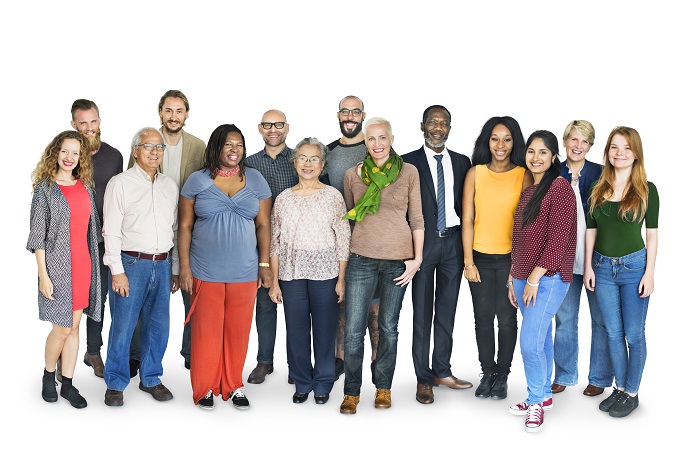
© Rawpixel.com - stock.adobe.com
It is a shared vision, one that states we will have a “strong, culturally competent, education workforce by 2032, that drives a world leading, learner-focused education system for the benefit of all learners”.
The government’s package aims to boost efforts “to ‘grow our own’ teachers, by offering flexible options for Kiwis to study, on top of existing initiatives that support qualified teachers to re-enter the profession or return from overseas”. Looking well ahead, an Education Workforce Strategy has already begun a “comprehensive end-to-end review of the education system”.
This future-strategy will come from the work currently underway in the Education Work Programme, and the Education Summits, Kōrero Mātauranga, wānanga, fono, and other public engagements. It will be developed through a series of workshops in partnership with the education sector and a variety of educational organisations.
“The Education Workforce Strategy will be complemented by a workforce strategy for Māori-medium education – covering Māori immersion level one, where more than 81 percent of learning is provided in Māori language immersion. The two strategies are highly connected and will largely share the same outcomes.”
It states: “These strategies will identify the mix of professionals, paraprofessionals, and the executive, administrative, and technology support for early learning through to the end of secondary schooling.”
The full vision for the Education Workforce 2032 can be found on the government website but here is a summary of some of the vision for a future kaiako/teacher workforce…
Multiple entry pathways will be offered to people from different sectors and professions who have the relevant skills to become a great teacher or a paraprofessional.
Teachers are expected to prepare students to thrive in a faster, more uncertain, and far more complex world than ever before, a world that even the most up-to-date teachers may feel they’re not sufficiently equipped with tools to successfully negotiate. Keeping skills up-to-date is daunting but think about how much harder it would be if you were away from teaching for a substantial period of time.
What about the valuable pool of older, talented teachers who could be encouraged to return but have been put off by our rapidly changing pedagogy and digital landscape?
The Teaching Council of Aotearoa New Zealand | Matatū Aotearoa is the professional body for the New Zealand teaching profession that is encouraging ex-teachers to return to the profession and “promote all that’s best about teaching”. It is supporting returning teachers by among other things – implementing, The Teacher Education Refresh (TER) programme delivered by council-approved providers.
Designed to be flexible, it can be completed online by distance learning and teachers can continue work while they study, and the Ministry is covering the costs of the TER programme until the end of June 2022.
The Council’s website states: “The five-month programme is for three groups of people – provisionally certificated teachers who want to apply for another provisional practising certificate six years or more after becoming registered, teachers who have had no teaching experience since completing their initial education qualification and for those teachers who have not been in the classroom for a reasonable period.”
Some teachers reflected on their return journey with the TER programme on the teaching council website.
After 17 years away from teaching grandmother, Joanne Denekamp’s was inspired to return by her grandchildren and told the Council:
“I noticed how fast my grandchildren are acquiring reading skills and improving in literacy. They’re so much more advanced than children of their age used to be, and I thought how exciting it would be to be part of that new environment.”
She said it “was very enjoyable and has brought me up to speed on the changes that have been happening since I left the classroom. There’ve been huge changes, such as phonics for reading, and the new directions are exciting.”
South African trained, Heidi also let her teaching registration lapse for 15 years but told the teaching council she “applauds New Zealand for having these high standards”.
She said: “If teachers have been out of the profession for some time like I was, they need something to bring them up to date with current thinking and practice. For me, the TER was essential”.
On the other hand, Antoaneta was already a relief teacher when she enrolled in the TER programme, and told The Teaching Council:
“When I first graduated, there wasn’t the same focus on concepts such as Ako and kaupapa Māori. Coming back and picking that up through the refresher course – I just loved it.”
She reflected: “I believe everyone should do a refresher course every six years. You think six years isn’t a long time, but it’s a lifetime for children and the teachers.
“The context around us changes so much.”
A new report from the University of Auckland’s Our Voices Project asks young people what…
The government has opened a tender for new standardised assessment tests, leaving educators shocked and…
Early in her career, Kiri Turketo found inspiration in an unlikely source. In this Principal…
Real stories of dedication, challenges, and triumphs from educators in NZ. Part six comes from…
Is fast furniture impacting your school's environmental footprint? We explore eco-friendly solutions to reduce furniture…
A new report from the New Zealand Initiative argues we need a stronger and clearer…
This website uses cookies.